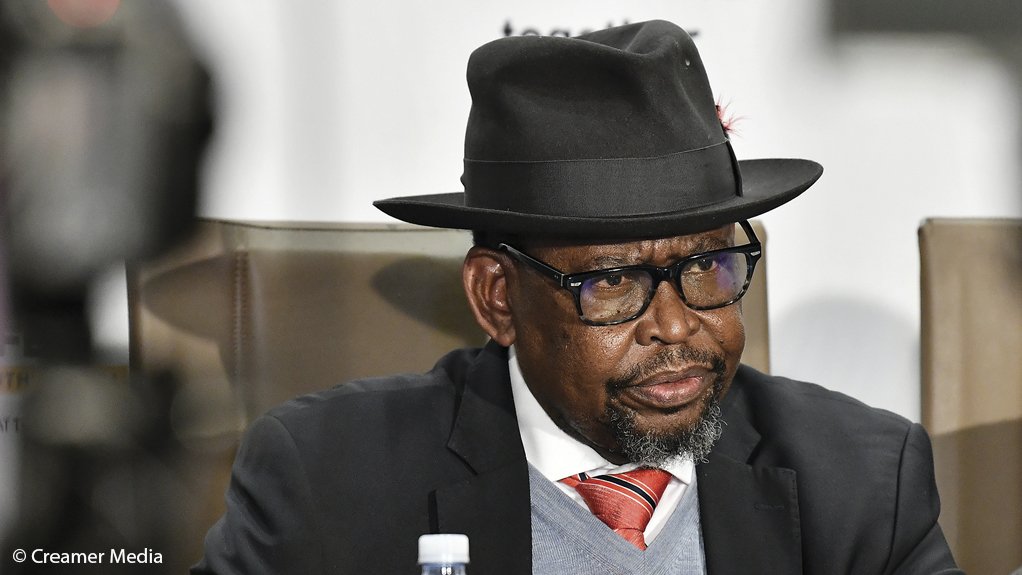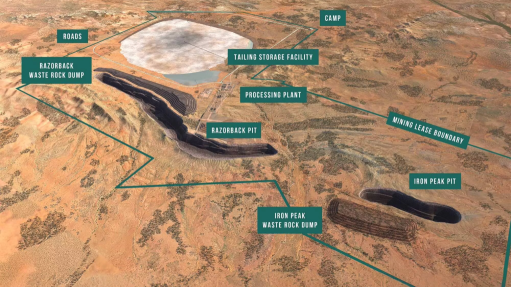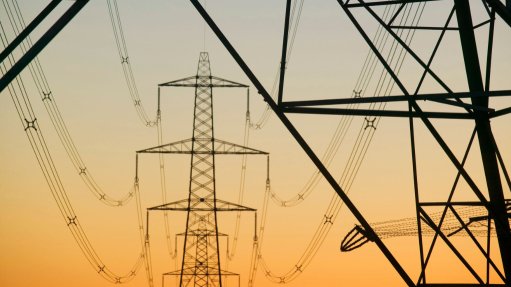Godongwana rallies financial services sector for climate resiliency efforts
In an address at the Government Employees Pension Fund’s yearly Thought Leadership Conference on September 15, Finance Minister Enoch Godongwana said the “winds of change” have started to blow within the pension fund industry as it shifts to focus on social upliftment.
“As part of this change, the industry is charged with the enormous responsibility to ensure that capital flows towards not only economic returns, but also social impact,” he said.
However, this presents both opportunities and risks, Godongwana noted.
Focusing on the opportunities that climate change held for the pension funds industry, he said institutional investors could play a key role in enabling Africa to transition to more resilient and sustainable economies and better prepare for climate-driven events and catastrophes.
He pointed out that the African Development Bank (AfDB) in March estimated that South Africa would require $30-billion (about R522-billion) to finance its just energy transition, exclusive of the investments required for disaster management and mitigation against climate-driven events and catastrophes.
Climate change requires addressing because of recent related events in Africa, such as floods in many parts of West Africa on the Atlantic seaboard and, more locally, in KwaZulu-Natal and the Eastern Cape. “Once in a lifetime flooding has also recently affected India and Pakistan,” said Godongwana.
“In all these cases, the infrastructure has shown itself as insufficient to withstand this new normal.
“The increasing incidence of climate-related disasters means that we must channel more resources towards designing and implementing effective measures to mitigate the effects of climate change,” he added.
In this regard, Godongwana highlighted that pension funds could play a central role in helping to reach net-zero emissions. “[Pension fund’s] long-term liabilities and investment profile render them particularly vulnerable to damage caused by climate change.”
Further, he said pension funds could also be influential in aligning other investors towards net-zero emissions.
As such, the financial services sector needed to respond to geopolitical shifts, including climate change, in ways that ensured that the goal of an inclusive and sustainable economy could be achieved, advised Godongwana.
In addition, he said the financial services sector could play a major role in helping to arrest global warming, re-establish respect for nature, and put the world economy on the path of sustainability. “This includes investing for impact in social, climate and environmentally friendly projects.”
In addition, Godongwana said the financial services sector needed to place itself firmly behind the agenda of a Just Transition, which must be inclusive and must leave no one behind.
INFRASTRUCTURE CATALYST
In addition to the climate transition, there are other opportunities for pension funds to co-invest with the government, especially in the delivery of infrastructure, he posited.
“Investment in South Africa, measured as gross fixed capital formation, has lagged gross domestic product (GDP) for some years now. This is owing to continued global and domestic uncertainty, as well as the re-emergence of pre-existing domestic growth constraints, chief among them being unreliable electricity supply,” said Godongwana.
According to the World Bank, closing sub-Saharan Africa’s infrastructure quantity and quality gap has the potential to raise GDP per capita by as much as 2.6% a year.
However, closing the infrastructure gap and future-proofing African communities and continental economies required resources. Here, he said, conservative estimates by the AfDB suggested that African infrastructure needed a total of $130-billion to $170-billion a year, while the financing shortfall ranged at about $100-billion, or more.
In South Africa, the amount needed to finance both brown and greenfield infrastructure projects totalled about R1-trillion over the next five years, stated Godongwana. “Put differently, South Africa needs to lift the level of fixed investment in the economy to at least 30% of GDP from the current level of around 19% of GDP.”
To address this shortfall required partnerships with the private sector, especially in the finance sector where global institutional investors, including pension funds, had more than $100-trillion in assets under management, he pointed out.
Godongwana added that government was doing its part to create a conducive environment for the private sector to invest in the delivery of infrastructure.
“We acknowledge that the problem is not merely a lack of private sector desire to invest. The obstacle is often the insufficient supply of investible infrastructure projects.
“Inadequate project design and preparation, as well as regulatory and institutional frameworks that are too difficult to navigate, are not conducive to private investment,” he said.
“Our public-private partnership [PPP] framework is long overdue for revision. It takes too long to get a PPP off the ground. To address this, we aim to create a centre-of-excellence for PPPs, as well as introducing an expedited approval process for projects below a predetermined value.
“This centre-of-excellence will be a direct interface with private financial institutions for investments in critical government infrastructure programmes,” Godongwana said.
Article Enquiry
Email Article
Save Article
Feedback
To advertise email advertising@creamermedia.co.za or click here
Announcements
What's On
Subscribe to improve your user experience...
Option 1 (equivalent of R125 a month):
Receive a weekly copy of Creamer Media's Engineering News & Mining Weekly magazine
(print copy for those in South Africa and e-magazine for those outside of South Africa)
Receive daily email newsletters
Access to full search results
Access archive of magazine back copies
Access to Projects in Progress
Access to ONE Research Report of your choice in PDF format
Option 2 (equivalent of R375 a month):
All benefits from Option 1
PLUS
Access to Creamer Media's Research Channel Africa for ALL Research Reports, in PDF format, on various industrial and mining sectors
including Electricity; Water; Energy Transition; Hydrogen; Roads, Rail and Ports; Coal; Gold; Platinum; Battery Metals; etc.
Already a subscriber?
Forgotten your password?
Receive weekly copy of Creamer Media's Engineering News & Mining Weekly magazine (print copy for those in South Africa and e-magazine for those outside of South Africa)
➕
Recieve daily email newsletters
➕
Access to full search results
➕
Access archive of magazine back copies
➕
Access to Projects in Progress
➕
Access to ONE Research Report of your choice in PDF format
RESEARCH CHANNEL AFRICA
R4500 (equivalent of R375 a month)
SUBSCRIBEAll benefits from Option 1
➕
Access to Creamer Media's Research Channel Africa for ALL Research Reports on various industrial and mining sectors, in PDF format, including on:
Electricity
➕
Water
➕
Energy Transition
➕
Hydrogen
➕
Roads, Rail and Ports
➕
Coal
➕
Gold
➕
Platinum
➕
Battery Metals
➕
etc.
Receive all benefits from Option 1 or Option 2 delivered to numerous people at your company
➕
Multiple User names and Passwords for simultaneous log-ins
➕
Intranet integration access to all in your organisation




















